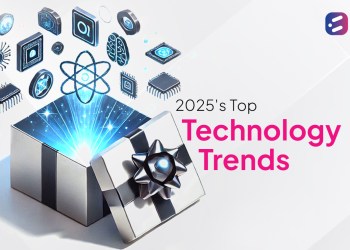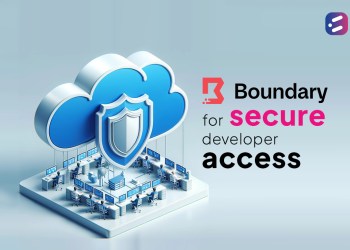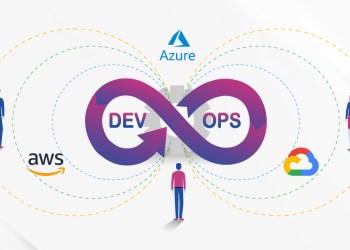Author: Madhav
Reading time: 5 mins
2023: Gartner forecasts worldwide public cloud end-user spending to reach $600 billion.
2025: Experts estimate cloud computing technology going to be a $832 billion market.
2027: The cloud computing market will be worth $1,240.9 billion, says a report.
2030: The global cloud computing market size is projected to grow to USD 1470.11 billion.
In short, as Sid Nag, Vice President Analyst at Gartner, says, “Cloud migration is not stopping.” Not when moving operations to the cloud reduces capital expenditure, improves business management, speeds up processes, increases flexibility, and promises good returns. Cloud computing is agile, elastic and scalable which will ensure it continues to be a “bastion of safety and innovation”, as Nag predicts.
Cloud computing, which includes storage, software, servers, databases, network, analytics, and intelligence, is the center of any business process today, and as John Chambers of Cisco once said, “At least 40% of all businesses will die in the next 10 years if they don’t figure out how to change their entire company to accommodate new technologies”.
So, what are some of the trends in cloud computing that we can expect over the next decade?

1. Artificial Intelligence
AI is the future in every industry. So, what is AI in cloud computing going to look like in the coming decade? Pew Research asked several experts these questions. Jeff Jarvis, director of the Tow-Knight Center for Entrepreneurial Journalism at the City University of New York, said, “By 2025, artificial intelligence will be built into the algorithmic architecture of countless functions of business and communication, increasing relevance, reducing noise, increasing efficiency, and reducing risk across everything from finding information to making transactions. If robot cars are not yet driving on their own, robotic and intelligent functions will be taking over more of the work of manufacturing and moving.” In the coming decade, cloud-based AI holds immense potential to impact various aspects of society and industry.
2. Quantum Computing
“The real excitement about quantum is that the universe fundamentally works in a quantum way, so you will be able to understand nature better,” believes Google’s Sundar Pichai. From cleaner fertilisation to improved cybersecurity, solar capture to drug development, the future of quantum computing is brighter than ever, promising to revolutionize various fields in the coming decade. Quantum computing is still in its early stages of development, but companies such as Google and AWS are already adapting emerging technologies to process data. Ray Johnson, independent director at quantum startup Rigetti Computing, believes that quantum computing will be successful in “analyzing the very, very complex system of variables that is weather” to vastly improve weather prediction.
3. Disaster Recovery
The flexibility, scalability, and dependability of cloud computing are helping in cloud disaster recovery as well. Disaster recovery as a service (DRaaS) is, in fact, a cloud computing service model that is growing because it results in less downtime, improved end-to-end recovery as well as the possibility of continuous deployment for recovery. Companies around the world are racing against time to create advanced data analytics tools to build their disaster recovery strategy, assessing and predicting disasters to aid in the recovery process.
4. Serverless Computing
Netflix is one of the pioneers of harnessing serverless computing to deliver video its more than 232 million subscribers worldwide. With the cloud provider dynamically managing server resources and automatically scaling them up or down to the application’s demands, serverless computing is ideally suited to applications with unpredictable workloads.
With its promise of reduced operational workload, we’re certainly looking at increased adoption in the coming decade. There is likely to be broader language support, meaning while serverless platforms support popular programming languages like JavaScript and Python, in the future, there will be support for additional languages. Enterprises are also looking at extending serverless capabilities to edge computing scenarios to reduce latency and increase real-time processing. With serverless computing already proving to result in reduced operational costs as well as improved scalability, it is going to be in the driver’s seat as far as cloud computing is concerned.
5. Data Privacy
Data security and privacy has come into focus for enterprises globally with more and more businesses opting for cloud-based services to store and process data. This is leading to validated concerns about data privacy and is one of the biggest challenges of cloud computing in the future. The Data Protection-as-a-Service market is expected to grow $18.96 bn by 2026. According to a Frost and Sullivan report, in the next few years, we will average over 20 connected devices per human. Add to this 5G making way for 6G on the networking front, and you are looking at a huge challenge of data privacy in the future.
6. Edge Computing
As it does presently, edge computing will retain its pivotal role in data processing and analysis, empowering real-time decision-making. Think about the logistics industry for a second. In the case of a platoon of trucks travelling as a convoy, one behind the other (done today to save fuel and decrease congestion), edge computing technology will enable autonomous platooning, meaning it will be possible to remove drivers from all trucks except the front one because the trucks will be able to communicate with each other. It’s just one example of how in the future, edge cloud computing will help decrease downtime, as well as improve network safety and resilience across sectors.
7. Internet of Things
According to McKinsey, cities that implement smart-mobility technologies have the possibility of lowering traveling times by 15 to 20% on average by 2025. This is just one of the industries IoT technology has already begun revolutionizing. IoT is poised to address challenges in various fields from healthcare to governance, traffic management being one of them. The worldwide consumer IoT market is predicted to become worth $555.92 billion by 2030. It is predicted that the world will have over 30 billion IoT devices by 2025. In the coming decade, IoT in cloud computing promises to enable better real-time monitoring, improve predictive maintenance and enhance informed decision-making, empowering businesses to drive innovation.
With emerging technologies, enhanced automation, and increased security measures the power of the cloud is poised to drive digital transformation in the coming decade in more ways than one can imagine. But then comes the next challenge. In the words of George Westerman, MIT Sloan Initiative on the Digital Economy, “When digital transformation is done right, it’s like a caterpillar turning into a butterfly, but when done wrong, all you have is a really fast caterpillar.”
And that’s where choosing the right service provider will help. Drive innovation. Unlock the potential of cloud computing. Experience a seamless transition to the cloud. Contact Cloud Now today to discover how cloud computing can transform your business.













